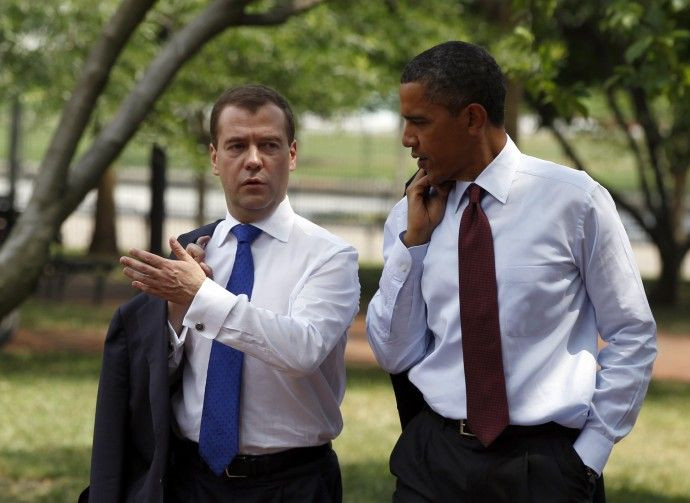US Senate to vote on START, Russia optimistic of ratification

The US Senate is due to vote on the new strategic arms reduction treaty between the country and its former cold-war rival Russia on Wednesday. The House on Tuesday voted to close out the debate 67 votes to 28, after the Democrats were joined by 11 Republicans.
The White House is expecting at least 70 senators to back the deal which could restrict both nations to a maximum of 1,550 nuclear warheads, down from the current ceiling of 2,200 agreed in Moscow in 2002.
Russian President Dmitry Medvedev on Wednesday stated that he was optimistic of the vote in the Senate.
My colleague, Barack Obama, is struggling with his lawmakers in attempts to persuade them to ratify the document. I hope he will succeed, Medvedev, said while speaking to the students of Indian Institute of Technology in Mumbai.
The deal, which was signed in April, is considered to be a major thrust in the relations between Russia and the United States. Leaders on both sides maintained that the deal could as well lead to complete disarmament over the next few years. Yet, several Republicans have expressed opposition, citing that it could hamper the modernization of US nuclear arsenal.
Lawmakers on the Russian side also objected to certain clauses, stating fears that they might make it easier for the U.S. to build a missile shield posing a threat to Russia. Over the past few months, Kremlin and White House have tried to convince critics that the deal was in the interest of both countries. The Russian Duma, however, is likely to pursue the deal only after the approval by the United States.
Key points of the deal
*Both sides will have to limit their nuclear warheads (ready to launch) to 1550 from 2,200 agreed at the 2002 Moscow treaty.
*The submarine-launched ballistic missiles, heavy bombers and intercontinental ballistic missiles will be limited to 800 and only 700 of them would be allowed to be nuclear armed.
*The deal would also allow both sides to conduct 10 short notice on-site inspections of nuclear warheads annually. Eight additional inspections of storage facilities for non-deployed warheads have also been included.
© Copyright IBTimes 2025. All rights reserved.





















